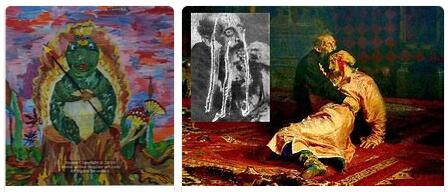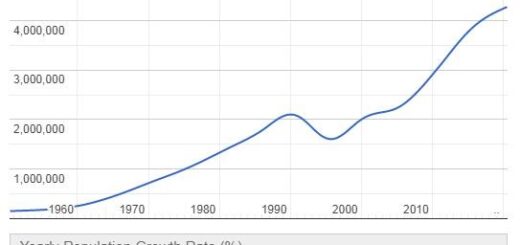Iraq as an Arab Country
Iraq, located in the Middle East, is a prominent Arab country with a rich cultural heritage, deep historical roots, and significant geopolitical influence. As a key member of the Arab world, Iraq plays a central role in shaping regional politics, economics, and culture. Check sunglassestracker.com to see other Arab countries.
Historical Background
Iraq’s history dates back to ancient times, with the region known as Mesopotamia often referred to as the “cradle of civilization” due to its role in the development of agriculture, writing, and urbanization. Mesopotamia was home to several ancient civilizations, including the Sumerians, Akkadians, Babylonians, and Assyrians, whose achievements in art, architecture, science, and literature laid the foundation for Western civilization.
Throughout antiquity and the classical period, Mesopotamia was a crossroads of trade, commerce, and cultural exchange between the East and West, connecting the Mediterranean world with the civilizations of Persia, India, and China. The region’s strategic location and abundant natural resources made it a coveted prize for empires such as the Achaemenid Persians, Alexander the Great’s Macedonian Empire, and the Roman Empire.
In the seventh century CE, Islam spread to Mesopotamia following the Islamic conquests, leading to the Arabization and Islamization of the region. Iraq became part of the Islamic caliphate, serving as the seat of the Abbasid Caliphate, which established Baghdad as its capital in the eighth century. Baghdad flourished as a center of learning, culture, and trade, attracting scholars, merchants, and travelers from across the Muslim world and beyond.
Cultural Identity
Iraq’s cultural identity is deeply rooted in its Arab heritage, Islamic traditions, and multicultural heritage, reflecting the diverse influences of its history and geography. Arab culture, language, and customs pervade Iraqi society, shaping its language, literature, art, music, cuisine, and social norms.
The Arabic language is the primary language spoken in Iraq, serving as the lingua franca of communication, education, media, and government. Modern Standard Arabic (MSA) is used in formal contexts, while Iraqi Arabic, a distinct dialect with regional variations, is spoken colloquially by the majority of the population.
Islam plays a central role in Iraqi culture and daily life, with the majority of Iraqis identifying as Muslims, predominantly Shia or Sunni, with smaller communities of Christians, Yazidis, and other religious minorities. Islamic traditions and practices, including daily prayers, fasting during Ramadan, and pilgrimage to holy sites such as Mecca and Karbala, are observed by millions of Iraqis across the country.
Iraq’s multicultural heritage is evident in its diverse population, which includes Arabs, Kurds, Turkmen, Assyrians, and other ethnic and religious groups. Each community contributes to Iraq’s cultural tapestry through its language, traditions, cuisine, music, and arts, enriching the country’s cultural diversity and resilience.
Despite its diverse population, Iraq’s cultural identity is shaped by a sense of shared history, belonging, and national pride, transcending ethnic, religious, and sectarian divisions. Iraqi nationalism, rooted in a common identity as Iraqis, has been a unifying force in times of crisis and upheaval, fostering solidarity, resilience, and resistance against external threats and challenges.
Societal Dynamics
Iraq’s societal dynamics are influenced by a complex interplay of factors, including politics, religion, ethnicity, tribalism, and regional geopolitics. The country has experienced periods of stability, prosperity, and cultural flourishing, as well as times of conflict, violence, and social upheaval.
Iraq’s political landscape is characterized by a diverse array of political parties, factions, and movements representing different ethnic, religious, and ideological interests. The transition from authoritarian rule under Saddam Hussein to a democratic system following the 2003 invasion of Iraq has been fraught with challenges, including sectarian tensions, political fragmentation, and external interference.
Ethnic and sectarian divisions have been a source of tension and conflict in Iraq, particularly between the Arab majority and the Kurdish minority in the north, as well as between Sunni and Shia Muslims across the country. The legacy of past injustices, including the Baathist regime’s repression and sectarian violence following the fall of Saddam Hussein, continues to shape intercommunal relations and political dynamics in Iraq.
Iraq’s economy is heavily dependent on oil exports, which account for the majority of government revenues and foreign exchange earnings. Despite its vast oil wealth, Iraq faces numerous economic challenges, including corruption, mismanagement, infrastructure deficits, and high unemployment rates. Economic inequality and social disparities exacerbate grievances and tensions within Iraqi society, contributing to social unrest and dissatisfaction.
Regional Significance
Iraq’s geopolitical significance extends beyond its borders, influencing regional dynamics and alliances in the Arab world and the broader Middle East. As a founding member of the Arab League, Iraq plays a central role in Arab diplomacy, cooperation, and solidarity on issues of mutual concern, including the Israeli-Palestinian conflict, regional security, and economic integration.
Iraq’s strategic location and natural resources make it a key player in regional energy markets, with its oil reserves attracting investment and competition from regional and international actors. Iraq’s relations with neighboring countries, including Iran, Turkey, Saudi Arabia, and Syria, are shaped by historical, geopolitical, and sectarian factors, influencing regional stability and security.
Iraq has been a focal point of regional power struggles, proxy conflicts, and interventions by external powers seeking to advance their interests and influence in the Middle East. The 2003 invasion of Iraq by the United States and its allies, followed by years of occupation and insurgency, destabilized the country and unleashed sectarian violence, extremism, and terrorism that continue to affect Iraq and the region today.
Iraq’s stability, security, and prosperity are crucial for the peace and stability of the Arab world and the wider Middle East. As Iraq strives to overcome its internal challenges, rebuild its institutions, and chart a path towards national reconciliation and development, its role as an Arab country and a regional actor will remain significant in shaping the future of the region.


